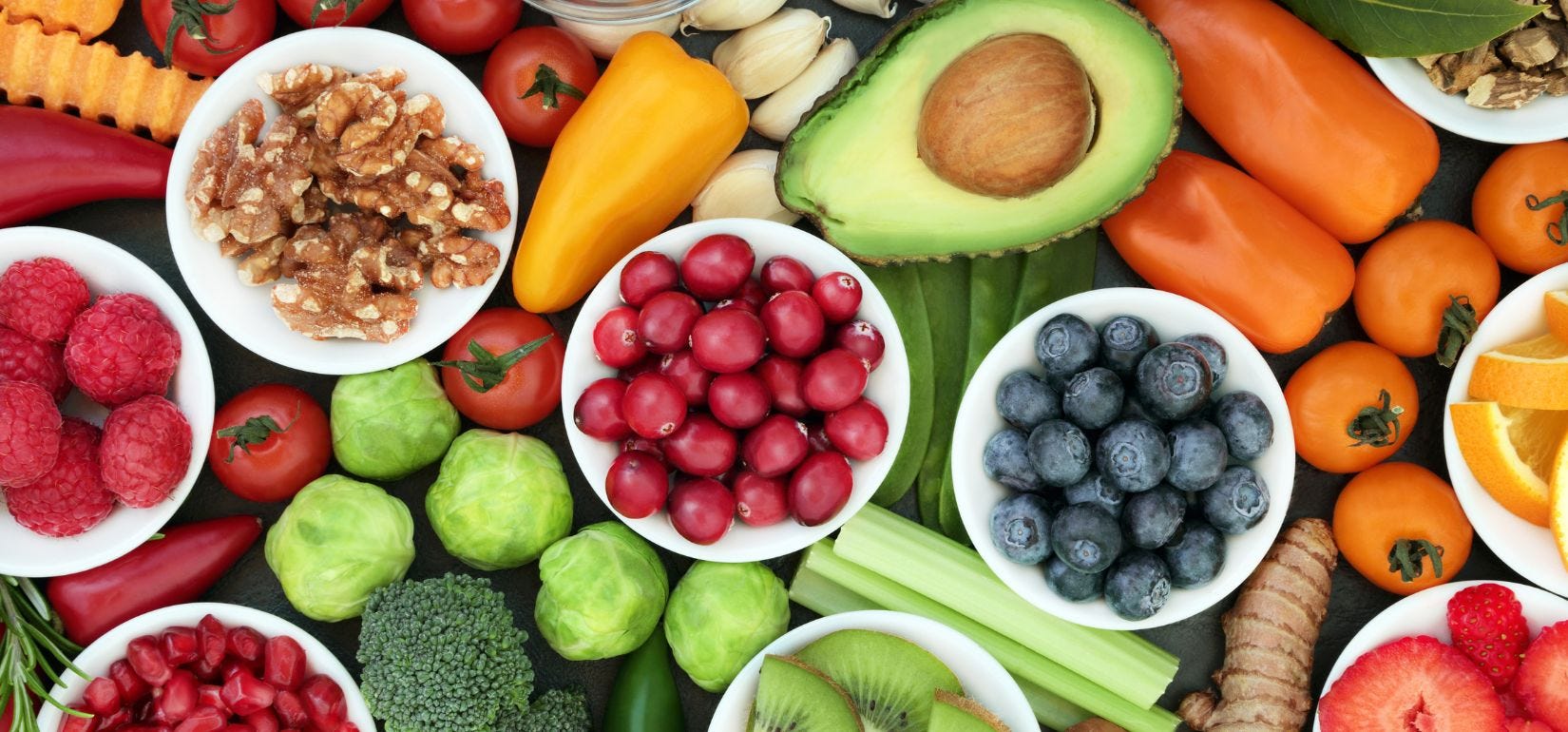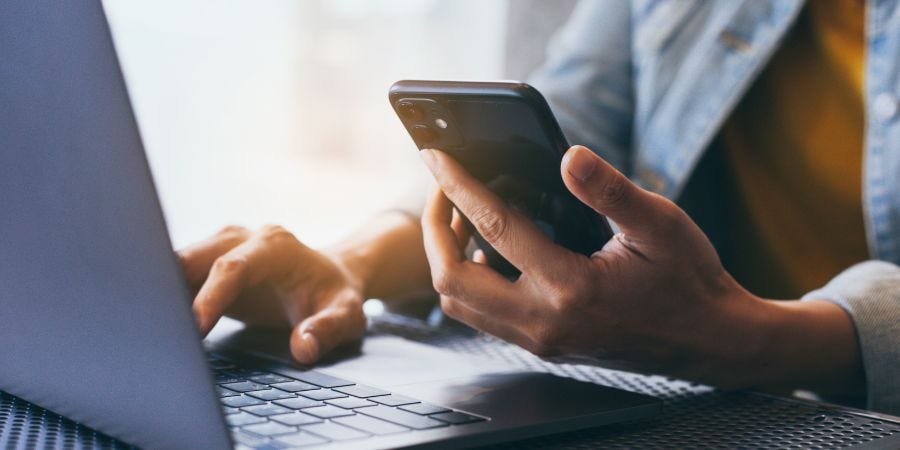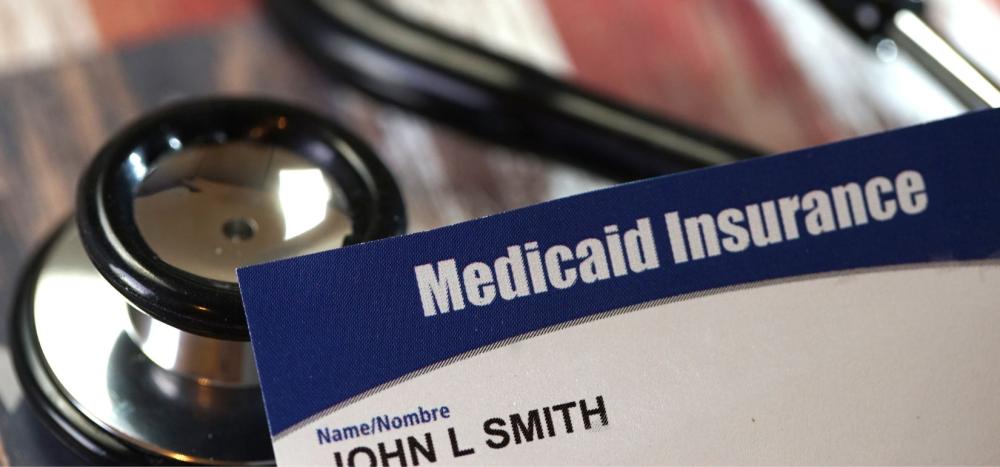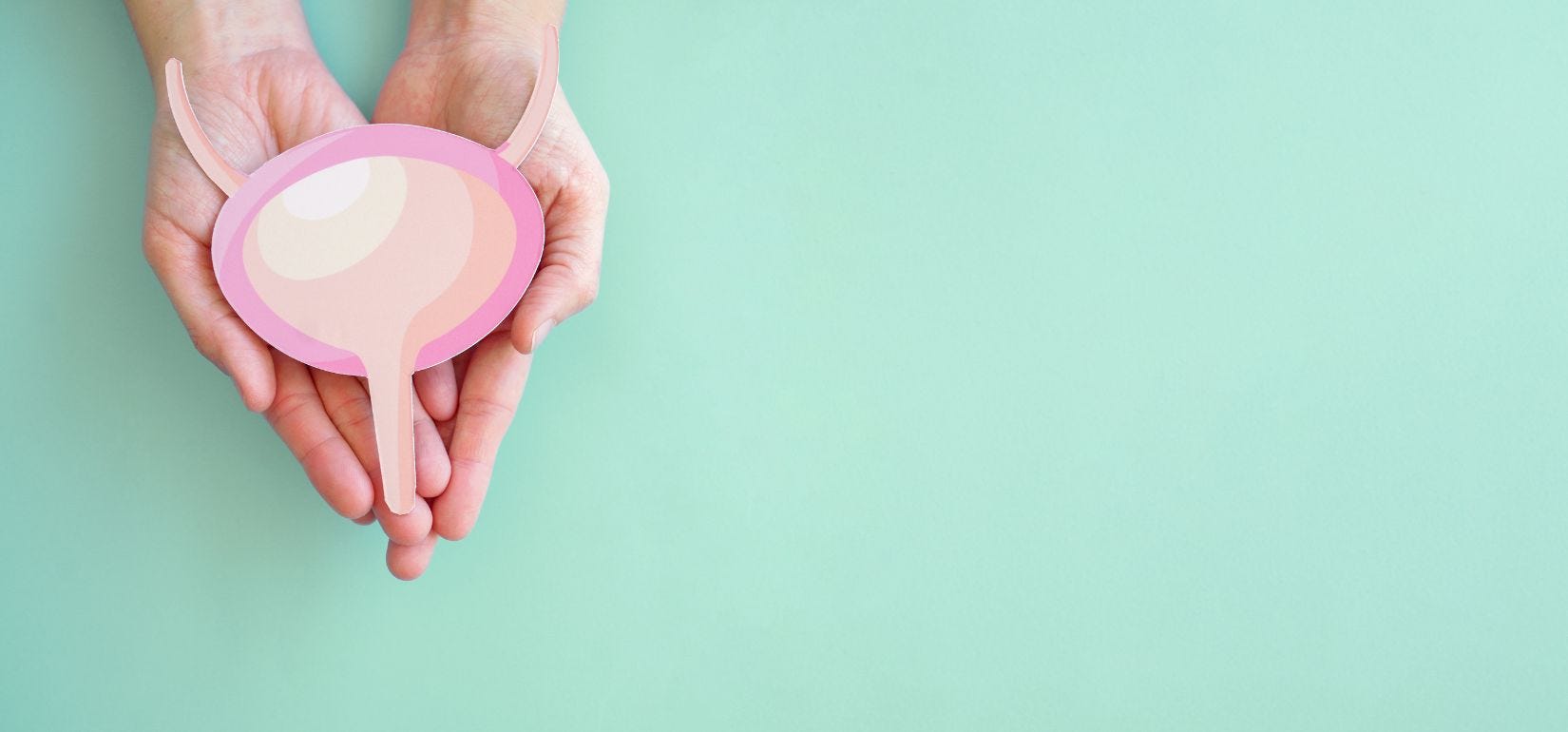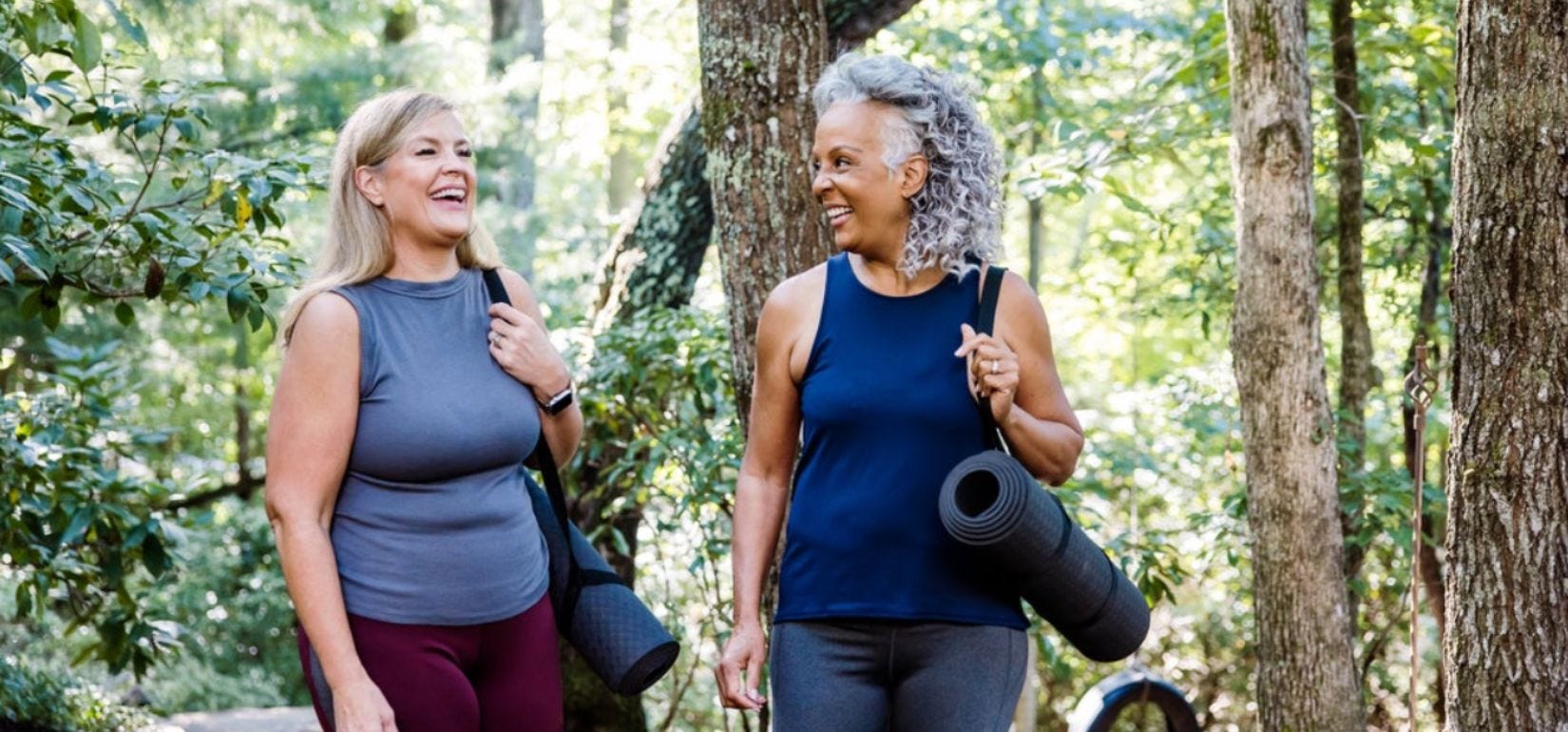Key Takeaways:
-
Common bladder irritants include citrus foods, alcohol, caffeine, carbonated drinks, spicy foods, and processed foods.
-
Eating a diet rich in fiber from fruits, vegetables, and whole grains supports healthy digestion and can improve bladder function.
-
Reducing your intake of known bladder irritants like caffeine, alcohol, spicy foods, and acidic fruits to minimize discomfort and urgency.
Do you ever feel like something is going on with your bladder? Maybe you're experiencing frequent trips to the bathroom, a burning sensation when you pee, or even leaks when you laugh or sneeze. These could all be signs of an irritated bladder.
Many everyday foods and drinks act as sneaky bladder irritants, triggering these uncomfortable symptoms. The good news is that by making simple changes to your diet, you can soothe your bladder and regain control.
This article explores common bladder irritants like coffee, alcohol, and spicy foods, and provides practical tips and tasty alternatives to help you find relief. Keep reading to learn how to identify your triggers and discover a bladder-friendly diet that works for you.
How to Know If Your Bladder Is Irritated
If your bladder isn't healthy, it'll tell you through specific symptoms. Irritated bladder symptoms may include:
- Painful urination.
- Burning when urinating.
- Need to urgently go to the bathroom.
- Increased frequency of trips to the bathroom.
- Lack of bladder control (urinary incontinence).
- Pain or pressure in the abdomen or bladder areas.
- Pain in the pelvic floor muscles or bladder muscles.
- General bladder pain.
Common Bladder Issues
The symptoms listed above may be related to underlying bladder issues, such as:
- Urinary tract infections (UTIs): UTIs occur when bacteria enter your urethra and infect a part of your urinary tract. Symptoms are usually pain and burning while urinating, cloudy urine, and frequent urination.
- Bladder infections: Bladder infections are another form of infection created by unwanted bacteria entering your urethra and spreading to your bladder. A bladder infection is usually more severe than a typical UTI. Symptoms typically include pain in your bladder or abdomen, fever, and chills.
- Interstitial cystitis: Also known as painful bladder syndrome, this chronic condition has many causes and symptoms, such as general pain and pressure in your bladder. Symptoms include painful urination, frequent urination, and chronic pain in your bladder.
- Overactive bladder (OAB): OAB comes with a frequent and sudden urge to pee that you may not be able to control. Damaged or weak detrusor muscles cause OAB. Symptoms of OAB often include voiding your urine more than usual and during the night.
- Stress incontinence: Stress incontinence occurs when you leak urine when laughing, coughing, sneezing, exercising, or lifting heavy objects. In addition, weak bladder muscles can cause stress incontinence.
- Urge incontinence: Urge incontinence comes with symptoms of urinary urgency and sometimes leakage.
Check your coverage for 100% free incontinence products now!
Check your coverage for 100% free incontinence products now!
What Are Bladder Irritants?
It's important to remember that everyone's bladder is different, and what irritates one person may not bother another. Here's a breakdown of how those common culprits can cause bladder irritation:
- Artificial sweeteners: These can irritate the bladder lining in some people. While research is ongoing, it's thought that the body may not fully break down artificial sweeteners, and they can be excreted in urine, potentially irritating the bladder. Natural sweeteners like stevia can also cause bladder irritation in some individuals.
- Citrus fruits (like grapefruit, lemon, lime, and tomatoes): These fruits are acidic. This acidity can change the pH balance of your urine, making it more acidic and potentially irritating to the bladder lining.
- Caffeine and alcohol: Both of these substances are diuretics. This means they increase urine production. Frequent urination can irritate the bladder, especially if you already have a sensitive bladder.
- Spicy foods: Spicy foods contain compounds that can irritate the bladder lining, similar to the way they can irritate your stomach.
- Dairy: Some people have difficulty digesting lactose (the sugar in milk). This can lead to gas, bloating, and even diarrhea, which can put pressure on the bladder and cause irritation.
- Carbonated drinks: The bubbles in carbonated beverages can increase pressure in the bladder, leading to discomfort and a feeling of urgency.
- Chocolate: Chocolate contains caffeine and other compounds (like theobromine) that can be stimulating and may irritate the bladder.
- Processed foods: Processed foods often contain high levels of sodium, artificial ingredients, and preservatives, which can irritate the bladder lining.
- Certain medications: Some medications, like diuretics (water pills) and certain types of antidepressants, can irritate the bladder as a side effect.
If you suspect that certain foods or drinks are irritating your bladder, it's a good idea to talk to your healthcare provider. They can help you identify your triggers and suggest strategies for managing your symptoms.
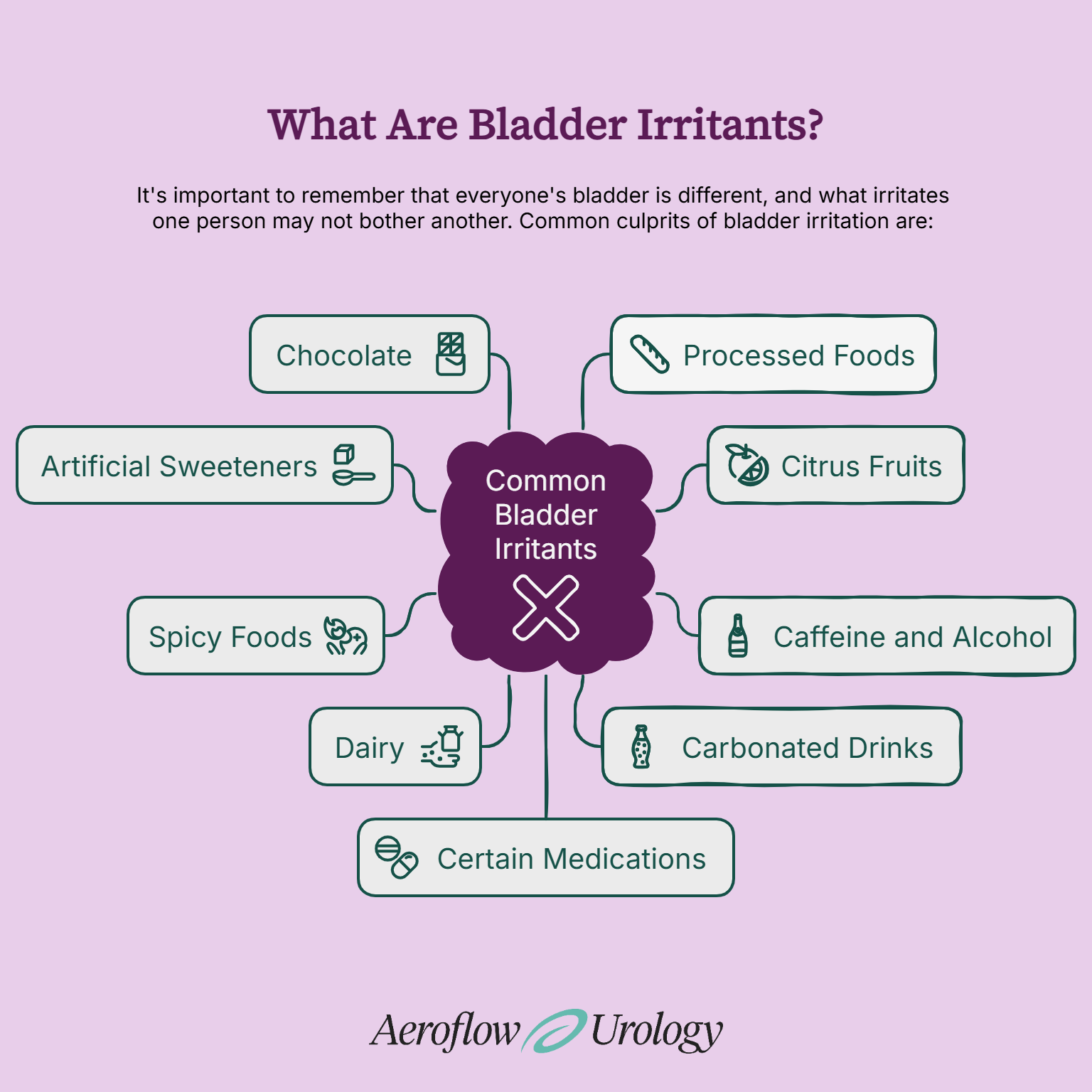

10 Diet Changes to Calm an Irritated Bladder
Whether or not you have urinary incontinence or another underlying bladder condition, certain foods and drinks that may be in your diet are common bladder irritants and can start bladder condition symptoms or worsen existing ones. Follow the following 10 diet changes to keep your bladder happy and healthy!
1. Stay Hydrated
Staying hydrated is one of the most important steps to improve your bladder health, but unfortunately, it's also one of the most overlooked. It may seem counterintuitive to drink more water if you live with incontinence.
However, reducing water intake can increase the incidence of urinary incontinence. Drinking less water may initially decrease the need to urinate but ultimately increases the risk for urinary tract infections (UTIs), increasing the frequency with which you need to urinate. Drinking enough water can also reduce your risk of developing constipation.
We recommend that you drink as much water as you feel your body needs during the day.
Try This: Carry a reusable water bottle with you to work, school, and home. This will help you drink more water and save the environment from plastics!
2. Eat More (Nutritious) Carbs
Who doesn't love hearing about eating more carbs? (Just make sure they're the nutritious ones!) Filling your meal plan with foods high in whole grains, such as oatmeal, whole-grain bread, whole-grain cereal (not the sugary cereals), and brown rice, will help keep your bladder and bowel movements regular.
Try This: Mix in fresh fruits and nuts like almonds, walnuts, or seeds with your morning oatmeal for a tasty, filling breakfast that will keep you fuller for longer. Add peanut or other nut butter to your bowl for extra nourishing fats.
3. Increase Your Fiber Intake
Eating more fiber-rich foods is one of the tastiest tips for promoting bladder health.
Fiber is an essential part of an effective overactive bladder diet, helping with regular bowel movements, as constipation can lead to bladder irritation as well. Fiber can be found in an array of foods from the beans and lentil family and some of the whole-grain foods you've already added to your grocery list.
Try This: Black beans! These are a great addition to many of your already-existing meals. Love eating a quesadilla? Add black beans to your chicken quesadilla for a meal packed with fiber—extra points for making it on a whole-grain wrap! Do you crave pasta? Try lentil pasta for your next spaghetti night. You won't even notice the difference!
4. Go Bananas for Fruit!
We've all heard that cranberries and cranberry juice are great for bladder health – don't forget about the other tasty fruits and fruit juices that also help improve bladder function. Apples, bananas, berries (strawberries, blueberries), and pears are healthy, filling snacks high in fiber.
Try This: Smoothies are a great way to get a wide variety of nutrients into one tasty drink. Mix in a banana, berries, spinach (you won't even taste it!), oats, and a bit of apple juice for the ultimate bladder health smoothie! Just be careful not to overdo it with the amount of fruit you put in smoothies rather than eating it whole. The fibers from fruit skin and their insides make their sugar levels okay for your body to digest.
5. But Avoid Citrus
Acidic foods like citrus fruits and juices (grapefruits, oranges, and pineapples) are foods to avoid with an overactive bladder. These fruits are high in acid and have been known to cause bladder irritation. In addition, tomatoes (which are also a fruit!) are also high in acidity and should be avoided.
Try This: If you love tomato sauce on your (lentil) pasta, swap it out for a lighter sauce of olive oil, garlic, oregano, and feta.
6. Eat Your Veggies!
Adding more vegetables to your diet is excellent for many reasons, including improved bladder health. Vegetables such as kale and cauliflower are high in vitamin C and calcium to support kidney function. At the same time, corn and potatoes are high in magnesium, which helps your bladder to empty.
Try This: Get an air fryer! Air fryers are a great way to add tasty, crispy veggies. So grab your veggies (sweet potatoes, green beans, asparagus), toss some extra-virgin olive oil and garlic, and you're ready to go!
7. Cut Back on Caffeine
This can be one of the most challenging lifestyle changes to make for some people, but we had to get to the areas to avoid at some point. Foods and drinks high in caffeine often act as diuretics, which encourage the release of water in urine, meaning you'll have increased urges to visit the bathroom.
Caffeine is on the list of known bladder irritants, so it's crucial that you cut this lovely drink out of your diet if you're having bladder problems. Going cold turkey on all caffeine can be rough – go for minor changes at first, such as swapping your afternoon coffee with an herbal tea. Also, avoid all caffeine after 7 p.m., which will help limit the urge to get up at night to visit the bathroom.
Try This: Swap coffee for herbal teas or chicory coffee, which can give you the same feel as a warm cup of coffee in the morning without any caffeine content. And, if you genuinely can't go without caffeine, opt for a matcha latte with some of the highest amounts of antioxidants and a sustained caffeine buzz. Another tip if you can’t give up your caffeine, prep ahead of that caffeinated beverage with a glass of water to dilute your urine ahead of time.
8. Go Easy on the Alcohol
Among beverages to avoid, alcohol falls near the top of the list. Similar to drinks high in caffeine, alcohol also acts as a diuretic and will increase your urine production. While drinking alcohol, you may also be less aware of your urge to use the restroom, causing an increased risk of leakage or accidents.
Try This: Drink non-alcoholic beverages that still help you relax. We recommend mushroom hot chocolate to help you calm down before bed or a CBD drink for social occasions (stick with the non-carbonated options to avoid irritating your bladder).
9. Mind the Dairy
While vitamin D is great for bladder health, lactose is a pain point for many individuals. In addition, food and drinks high in lactose can cause loose stool and irritate the colon. Opt for dairy-free alternatives high in vitamin D, such as eggs, almond milk, and salmon.
Try This: Swap out milk for almond, soy, or oat milk—you won't even notice the difference! Vanilla almond milk is also great for adding extra flavor to your oatmeal or whole-grain cereal.
10. Cool Down on Spicy Foods
Spicy foods may taste great, but as many of us have experienced, they often lead to an upset stomach. Like caffeine, spicy foods work to irritate the bladder lining, causing an increased urgency to rush to the bathroom. If you love spice, you don't have to eliminate it from your diet but do your best to cut back on foods such as spicy Mexican dishes, hot wings, and horseradish.
Try This: If you can't live without the flavor in your life, speak with your healthcare provider to see what you can use to replace spicy foods.
While there is no direct cure for incontinence, updating your daily meal plan to include just some of these tips will drastically help to improve your bladder health. In addition, changes in body composition, especially around your waist line, is one of the best ways to positively affect your incontinence and may also benefit from the food swaps listed above.
Does Medicaid Cover Incontinence Supplies?
If you're experiencing incontinence due to poor bladder health or an irritated bladder, Aeroflow Urology can help! We provide incontinence supplies through Medicaid and most private insurance plans at no cost. Want to see if you're eligible to receive our products? Fill out our Eligibility Form today and determine your coverage.
Disclaimer
Information provided on the Aeroflow Urology blog is not intended as a substitute for medical advice or care from a healthcare professional. Aeroflow recommends consulting your healthcare provider if you are experiencing medical issues relating to incontinence.



